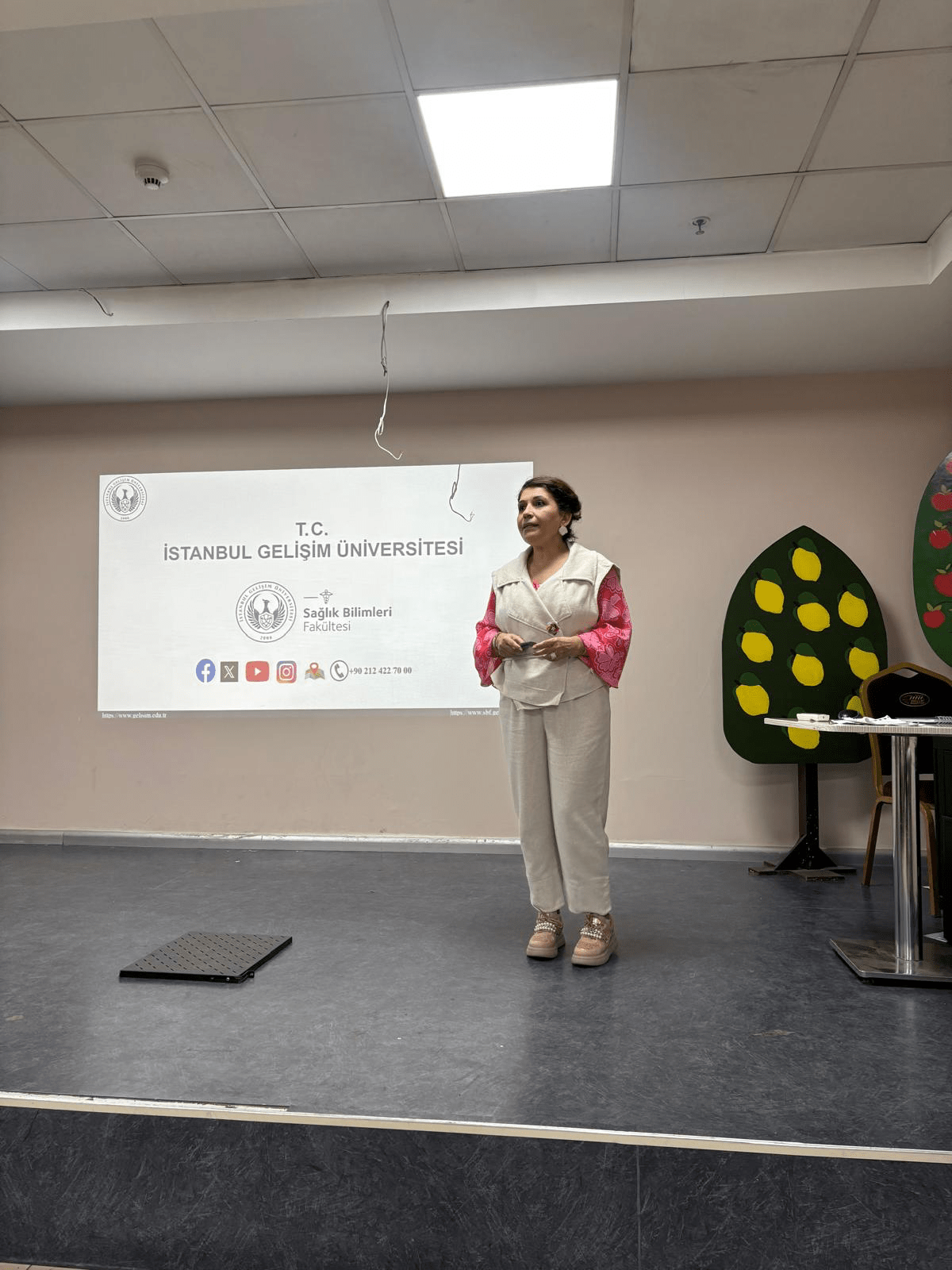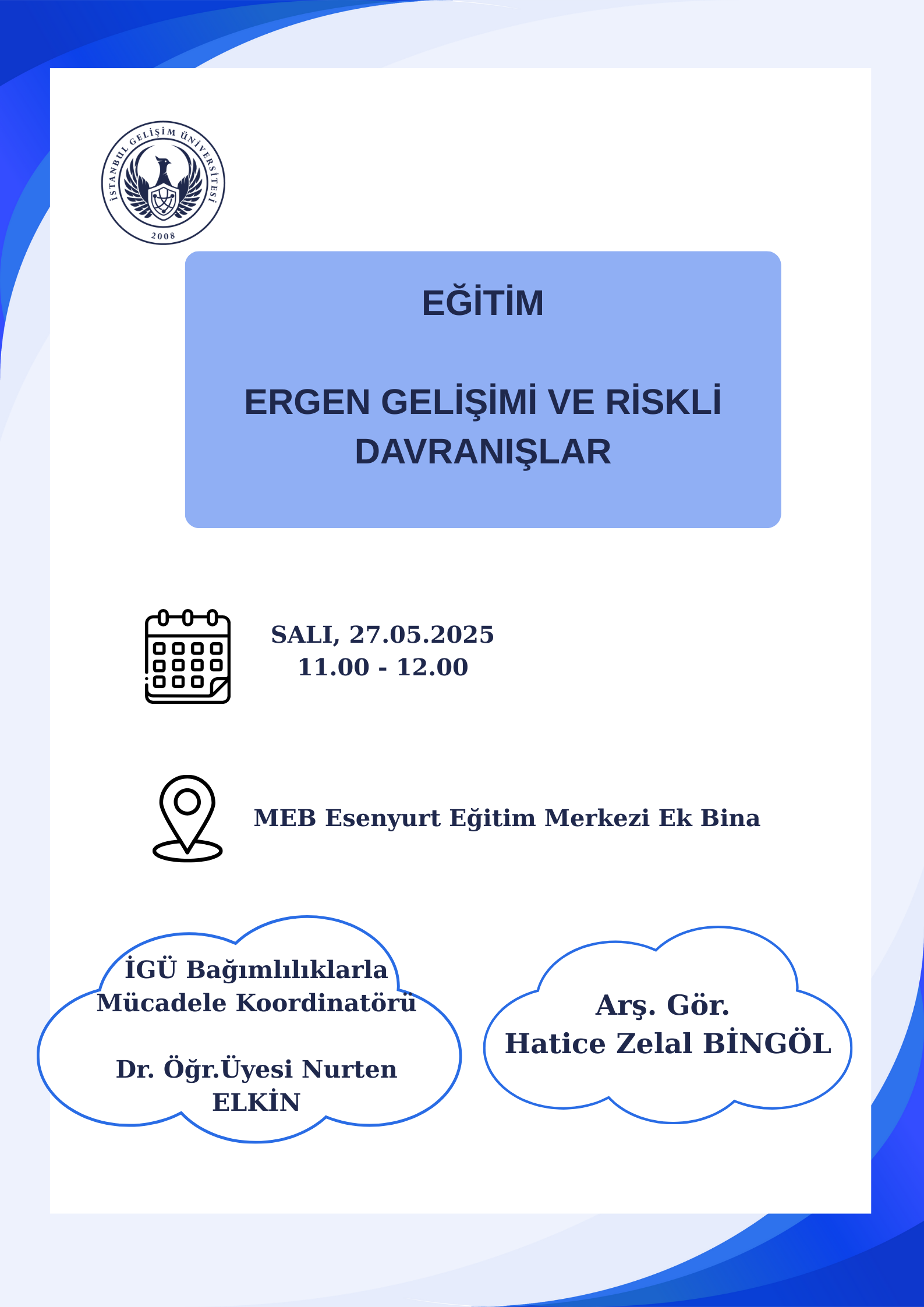The seminar began with an opening speech by Assist. Prof. Nurten ELKİN, who emphasized Istanbul Gelişim University’s mission towards public health and societal development. She briefly introduced her academic and professional background and then highlighted the university’s ongoing anti-addiction initiatives. In her speech, she illustrated the education, prevention, and awareness activities aimed particularly at risky behaviors becoming prevalent among youth, such as technology addiction and substance use.
Assist. Prof. ELKİN underlined that combating addiction is not only an individual-based effort but also a multi-actor process that includes families, schools, and society. She stressed the importance of both individual awareness and the support of family and the social environment in promoting healthy lifestyles. She also discussed the significance and societal impact of the interdisciplinary studies conducted under the IGU Anti-Addiction Coordination Unit.
Following the opening speech, Research Assistant Hatice Zelal BİNGÖL delivered a presentation titled “Adolescent Development and Risky Behaviors.” She began by stating that adolescence is a developmentally critical period, and elaborated on its biological, cognitive, emotional, and social dimensions within theoretical frameworks.
The presentation then systematically addressed common risky behaviors observed during adolescence, including substance use, digital addiction, early sexual experiences, peer bullying, tendencies towards violence, and school dropout. The factors contributing to these behaviors—individual, familial, environmental, and cultural—were explained, with a particular emphasis on the decisive role of family dynamics, parenting styles, and social support systems.
BİNGÖL also shared preventive strategies aimed at reducing risky behaviors. These included enhancing the quality of intra-family communication, strengthening trust-based parent-child relationships, adopting consistent discipline approaches, promoting healthy role models, and implementing early intervention methods effectively. Furthermore, she emphasized the need to reinforce school-based guidance services, increase teachers’ awareness, and develop collaborative, community-based approaches.
During the Q&A session at the end of the seminar, participants actively engaged by directing questions to the experts. The seminar was observed to offer a multi-dimensional learning experience, both academically and practically. Among the participants were educators, guidance counselors, parents, and adult education students, who expressed that the seminar was an invaluable source of information and guidance—especially for those working with adolescents.
The event concluded with expressions of satisfaction from the participants, a strong interest in the topic, and wishes for similar events to be organized more frequently. Through such scientifically grounded events aimed at various segments of society, Istanbul Gelişim University continues to go beyond being merely an academic institution, fulfilling its social responsibility. It is aimed that these initiatives will reach broader audiences and become sustainable in the future.




